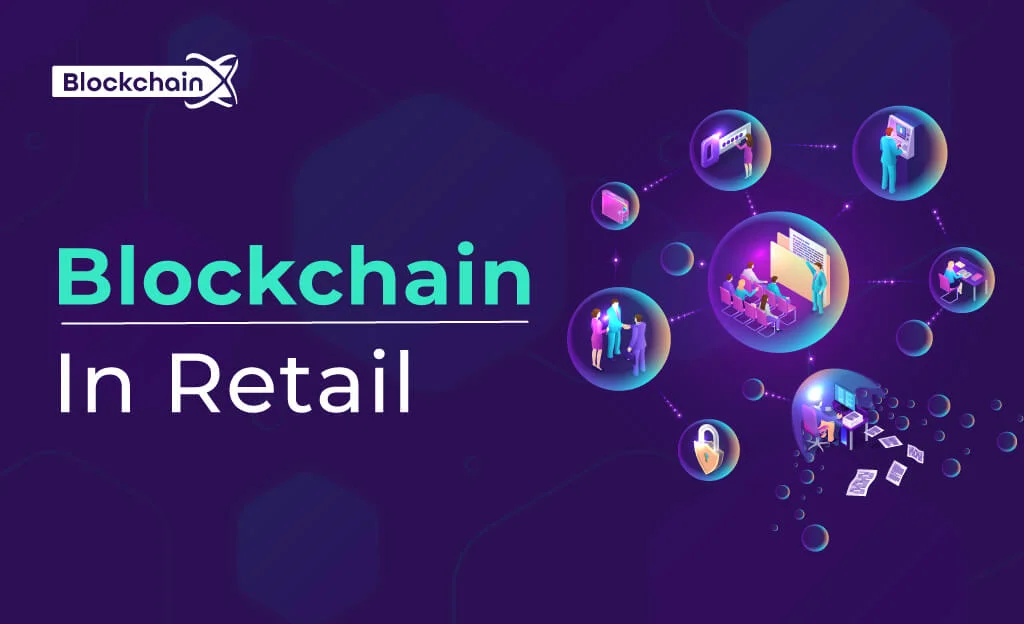Table of Contents


The Retail industry is responsible for making the product meet the needs of its intended consumers. As simple as it sounds, the retail industry faces a lot of struggles, like tight margins, meeting ever-rising customer expectations, and regulatory and quality issues.
The retail sector hasn’t changed much over the years, but high-profile companies are bringing in the concept of blockchain technology, initially developed by the creators of cryptocurrency, for easy exchange and communication with their consumers.
Key issues facing the Retail Sector
The retail industry's most pressing concerns are as follows:
Operational Inefficiency
The retail supply chains lack transparency, with one system isolated from the other and static record keeping, which are major obstructions to the integration of the operation system.
Consolidated Operational Omnichannel Retail
As consumer awareness grows, consumers demand omnichannel shopping and all related data, but retailers face challenges providing it due to improper data management.
Consumer Participation and Tracking
As consumers try to fetch more and more data about the product, their efforts entail security risks and are difficult to compile, share and develop insights. This, in turn, increases administrative costs.
Counterfeit Prevention
The cases of fraud products, that is, falsely imitated products, have increased a lot, which damages the brands in terms of both revenue and customer expectations.
Quality, Provenance and Brand
The number of cases of frauds is on the rise, and customers have become more conscious about their products. They want to know where their material comes from, and mistrust brands that generate claims about the ethical sourcing of these materials.
Regulator compliance
Current methods of production, supply chain, and the concept of the point of sale make it difficult to establish and demonstrate regulatory compliance across the organization.
Blockchain: A Solution for Retail
Blockchain ensures end-to-end tracking of products from the point of their manufacturing to their sale and distribution. This technology is a ledger-based system where data is divided into blocks and nodes. This data is completely decentralized, tamper-proof, and easy to use.
The retail sector is a complex web of production, logistics, supply and customer relationships. There are many ways that blockchain can be used in retail. Some of them are
Supply chain management
Each and every stage of the supply chain could be tracked down with the help of blockchain. This will help in achieving transparency and ease in passing requests at all levels.
Product Verification
This technology will track down each level of the chain from the sourcing stage until it reaches the stores. It will help with regulation and build customer trust in the context of ethical production and the quality of the product.
Payments
Payments will be easy, safe, and secure. Blockchain creates irrefutable records that are accessible by all parties.
Integration of digital and offline stores
Blockchain technology will help deliver seamless omnichannel interactions that have an encrypted database. This database will be accessible to all, including the customers, in real time, anywhere.
Auditability
The data will fairly showcase every log activity of the supply chain, which will ensure that the bylaws are followed, standards are maintained, and regulations are adhered to across all levels. This will promote transparency, immutability, and greater accountability.
Loyalty programs
Customer loyalty programs are a new thing on the market, and this technology will ensure real-time updating of the programs and increase the accessibility of records for the customer. This will cut costs and encourage consumer participation.
Ensure Delivery
With IoT tagging, consumers will be able to keep a live track of their shipment throughout the process and manage the delivery effectively.
Fight Hacking and Cybercrime
As there is no centralized data, it cannot be easily attacked. Blockchains are encrypted, therefore each record is safe.
Privacy Protection
The customer’s data is safe and secure on the ledger system. It is tamper-proof.
Summing Up
In a nutshell, blockchain in the retail sector will have records of each activity from sourcing to manufacturing to packaging to delivery. This will help in lowering administrative costs, process faster payments and delivery, provides privacy to customers, create value-added services, reduce fraud, theft and fraudulent imitation of products and most importantly it will build customer trust and loyalty.





